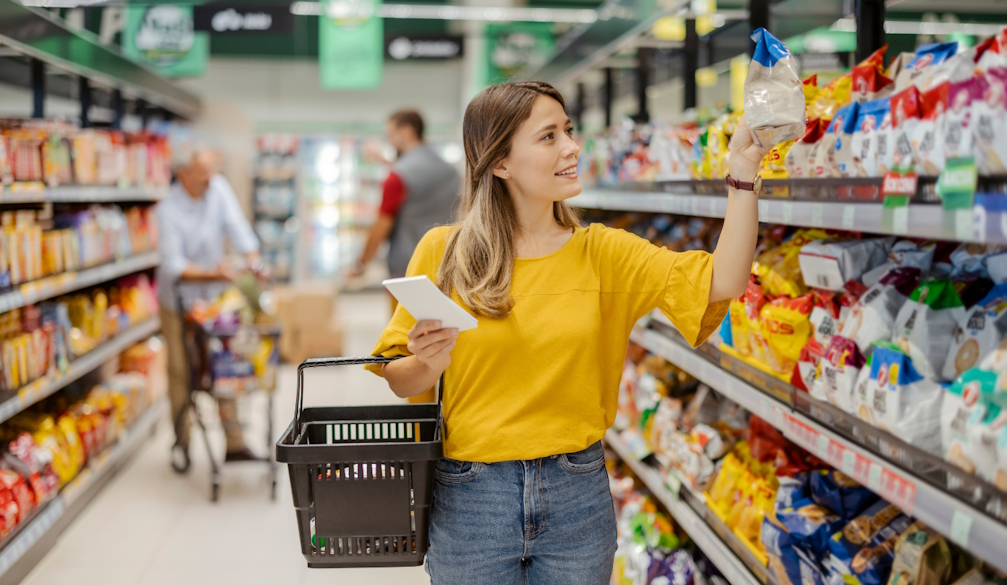ACCC interim report on supermarket inquiry tells of supplier woes and ‘oligopolistic’ market
- Written by Rob Nicholls, Senior Research Associate in Media and Communications, University of Sydney

It hasn’t been a good week for Coles and Woolworths. On Monday, the Australian Competition and Consumer Commission (the national competition regulator or ACCC) announced[1] it was taking legal action against the big supermarkets over alleged misleading pricing claims.
Now the ACCC has issued[2] its interim report[3] on the supermarket inquiry[4].
It reports the supermarket sector is highly concentrated and is an oligopoly. That means a market where just a few sellers control prices, at a cost to competition and consumers.
The ACCC also reported hearing “concerning” reports from grocery suppliers about being paid prices below the cost of production but having “little choice but to agree to highly unfavourable terms”.
The competition regulator was directed by Treasurer Jim Chalmers[6] to conduct the supermarket inquiry. That means it has significantly higher data-gathering powers than those in a consultation[7].
The big supermarkets will no doubt be feeling very nervous, as the regulator prepares to sift through their data and scrutinise them closely. In a statement[8], ACCC Deputy Chair Mick Keogh said:
We are using our compulsory information gathering powers to examine this reported behaviour by the supermarkets, and will include any findings in our final report.
The supermarket oligopoly
The interim report found Australia’s supermarket industry at the retail level is an oligopoly. In his statement, Keogh said[9]:
Oligopolistic market structures can limit incentives to compete vigorously on price. We see Woolworths and Coles providing a broadly similar experience to customers through largely undifferentiated product ranges, pricing at similar levels and similar non-price offerings including loyalty programs.
Woolworths and Coles account for about 67% of supermarket retail sales nationally, the ACCC found. ALDI accounts for about 9%, while Metcash-supplied independent supermarkets (IGA and Village Grocer) account for about 7%.
The ACCC found little difference in prices, product ranges or loyalty programs offered by Woolworths and Coles.
In the final months of the inquiry, the ACCC will scrutinise whether and how the supermarkets are using their market power – and how this affects consumers and suppliers.
In particular, the ACCC will examine whether supermarkets are exercising market power to increase retail prices more than they need to cover higher wholesale costs.
Market power
The ACCC looked at both the retail and the wholesale side of supermarket conduct.
It said grocery suppliers had told the inquiry of being paid at prices below the cost of production, and of “bargaining power imbalances”.
Keogh said[11] this was “concerning” and the ACCC is using its compulsory information-gathering powers to examine this reported behaviour. Examples given by suppliers include:
-
being required to pay rebates to retailers for specials and promotions
-
having to use retailer-specified advertising and transport services
-
being made to comply with burdensome accreditation and packaging requirements.
The ACCC’s interim report found there were particular issues raised by perishable product suppliers, including weekly tendering processes that lack transparency and transfer considerable risk to suppliers.
The ACCC is analysing whether the supermarkets are taking advantage of information asymmetries. These can lead to suppliers being unable to make efficient business decisions.
Loss of trust
The ACCC found Australians are experiencing a cost-of-living crunch, with the price of a typical basket of groceries increasing by more than 20% in the past five years.
Importantly, consumers told the ACCC they are losing trust in supermarkets’ sale price claims.
Consumer concerns include:
The member-only pricing is a particular bugbear, with consumers expressing concern to the ACCC that they are being penalised for not participating in supermarket loyalty programs.
The ACCC also said Australian consumers are better off when they are both sufficiently informed and have sufficient control over the collection and use of their data.
Of the ACCC consumer survey, almost half of respondents who do not participate in any grocery loyalty programs did not want stores to collect their data.
The ACCC found that supermarkets collect data via in-store transactions, online stores and mobile apps, and video and audio data.
Supermarkets and property plays
It may not be obvious, but access to suitable property is one of the barriers to entry for new and emerging supermarket competitors.
The ACCC observed ALDI has taken more than 20 years to reach a 9% share of national supermarket retail sales.
The ACCC’s preliminary view is Coles and Woolworths have competitive advantages in acquiring new sites as they can outbid other prospective tenants.
It is considering whether this may have implications for barriers to entry.
The ACCC’s preliminary view is that planning and zoning laws may slow a supermarket retailer’s ability to develop new stores.
The ACCC has also been told about alleged “land banking” (acquiring property to stop a competitor from using it) but has not formed any view on the issue.
Where next?
The ACCC says it has selected 14 products – including meats, fruit and vegetables, eggs, dishwashing tablets and pet food – “that will be the focus of detailed analysis over the remainder of the inquiry”. The final report is due in February 2025.
This 14-product analysis could be great news for both suppliers and consumers. It’s unlikely the supermarkets will treat either side of their market badly for these products while the regulator is watching.
If they do, the public hearings set down for November will be even livelier.
References
- ^ announced (www.accc.gov.au)
- ^ issued (www.accc.gov.au)
- ^ interim report (www.accc.gov.au)
- ^ supermarket inquiry (www.accc.gov.au)
- ^ Darren England/AAP Image (photos.aap.com.au)
- ^ directed by Treasurer Jim Chalmers (ministers.treasury.gov.au)
- ^ consultation (www.accc.gov.au)
- ^ statement (www.accc.gov.au)
- ^ said (www.accc.gov.au)
- ^ Con Chronis/AAP Image (photos.aap.com.au)
- ^ said (www.accc.gov.au)
- ^ Con Chronis/AAP Image (photos.aap.com.au)

















